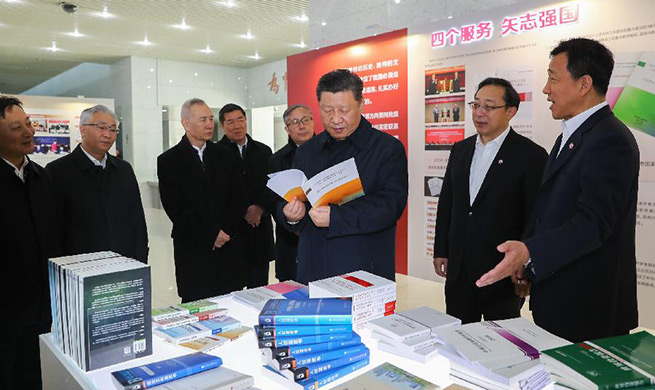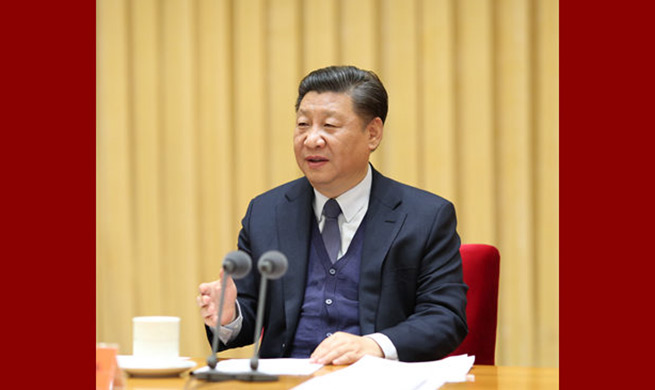LONDON, Jan. 17 (Xinhua) -- Prominent scientists in Britain have voiced their concern about a no-deal Brexit scenario, saying it will be "a disaster" for the country's science and innovation.
The British parliament on Tuesday rejected overwhelmingly the Brexit deal, further complicating the country's exit from the European Union (EU).
The unprecedented vote "makes the prospect of leaving the EU without a deal even more likely," said Venki Ramakrishnan, President of the Royal Society.
"A no-deal Brexit would be a disaster for British science and innovation and I urge our elected representatives to put the interests of the country first and get a new plan to prevent this catastrophic outcome," said Ramakrishnan.
Many British scientists have argued that Brexit should not create barriers for the movement of researchers. But the prospect of a no-deal Brexit might make the issue more complicated.
"Following the vote, it's critical that government does everything in its power to avoid a no-deal Brexit. Our scientists unanimously agree that no-deal would be a disaster," said Paul Nurse, Director of the Francis Crick Institute.
"We need a deal that not only allows the best scientists to come and work here but also encourages them to stay and makes them feel welcome," said Nurse.
Some 29 percent of academic staff in Britain's universities are non-UK nationals, with 17 percent coming from other EU countries and 12 percent from the rest of the world, according to the Higher Education Statistics Authority.
If Britain leaves the EU without a deal, it could lose access to over 1 billion pounds a year in EU research funding, and even with the British government's guarantees, local researchers and SMEs (small and medium enterprises) will lose access to around half a billion pound a year in research funding, figures from the Royal Society show.
"International collaboration is crucial to modern science, and the UK has particularly close research links with the EU. For British science to hold onto its world-leading position after Brexit, scientists must be able to move easily across Europe, participate fully in EU programs and work seamlessly with partners across the channel," said Nurse.
"I urge Parliamentarians to have the need for a good outcome for science and medical research at the forefront of their minds in the coming days and weeks," said Professor Robert Lechler, President of the Academy of Medical Sciences.













